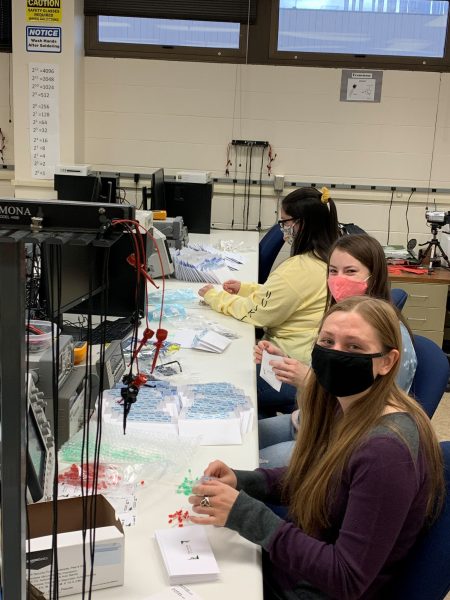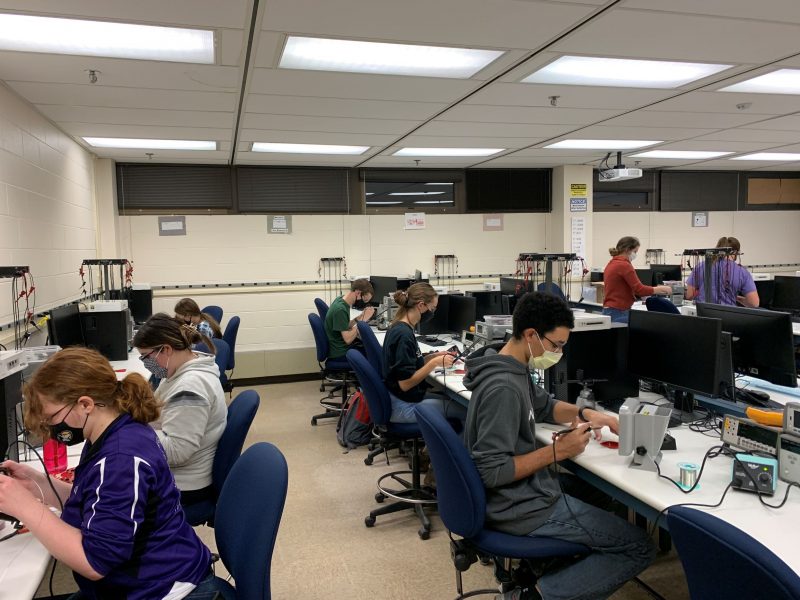
On a Mission to Make Hundreds of Outreach Kits, ECE Hosts Work Bees
by Liz Fujita
On multiple evenings in October, the lab space in EERC 722 was the image of organized chaos. Bags of LEDs, resistors, capacitors, switches, and batteries spilled out on lab benches, waiting to be counted out into bags. Soldering irons heated up, fume-extracting fans whirring. Empty boxes steadily filled with kits ready to bring to pre-college students. With 600 hands-on outreach kits to prepare, the Department of Electrical and Computer Engineering has been hard at work this fall with the help of phenomenal student volunteers, and there is still plenty more to go.
Interim chair Dr. Glen Archer is the PI on a grant from the Michigan Space Grant Consortium (MSGC) for the 2020-21 academic year that focuses on getting electrical engineering projects out to pre-college students at multiple levels. Along with co-PI Dr. Gretchen Hein (MMET) and academic advisor Liz Fujita (ECE), the program centers on multiple layers of mentorship.
“It’s an ambitious idea,” says Fujita, who in addition to advising helps to coordinate outreach efforts in the ECE department. “Michigan Tech has a lot of successful outreach programs that rely on this idea of near-peer mentoring—that idea that college students presenting information is more engaging, cooler, and better-received by high school students.” The MSGC proposal calls for several layers of near-peer mentoring to take place at several schools:
College students teach high school students how to solder and the basics of electronic components with the heart rate monitor boards.
Under the guidance of those college mentors, the high school students teach middle school students similar skills on the (slightly easier) tree circuit boards.
And, lastly, the middle schoolers take bouncy bot kits to their elementary school to teach 4th and 5th graders the basics of circuits.
All of this requires a tremendous amount of preparation. In October alone, members of Blue Marble Security Enterprise and the Society of Women Engineers spent a combined 50+ hours soldering, counting, stuffing bags, and organizing materials.
ECE has on multiple occasions joined forces with the Society for Women Engineers. Funding for this project includes support for not only the activity kits themselves (circuit boards, LEDs, resistors, batteries, etc.), but also for soldering stations, storage bins, and travel to schools in the local area as well as downstate. The combined funding secured by SWE and ECE will enable them to prepare 200 of each activity kit.
Notes Archer, “Near-peer mentoring allows younger students to picture themselves in a future state. They see this person in front of them and imagine their own life, in that role.” Although current COVID-19 restrictions leave the group unsure of when they will be able to visit schools, they remain optimistic. And, as work bees continue, they will be more than ready!
